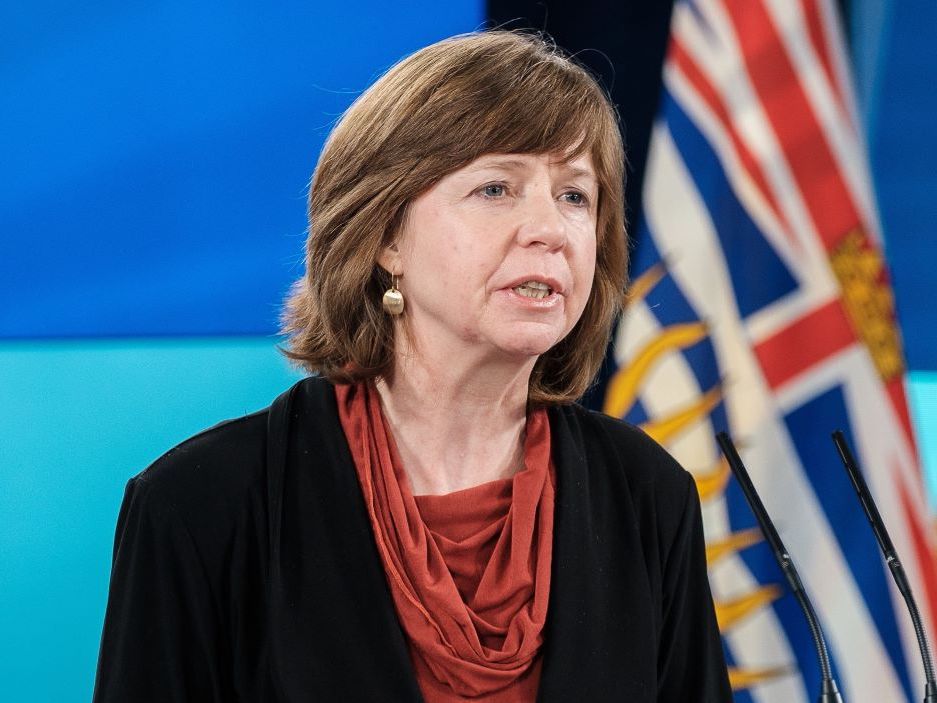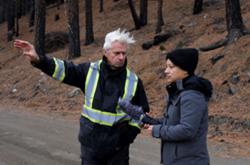An update on B.C.’s poverty reduction strategy released yesterday found the province still has nearly the highest rate of poverty in the country.
“We see in all our communities and hear from people on the ground that vulnerable people are still hurting,” said Minister of Social Development and Poverty Reduction Sheila Malcolmson in an interview today.
While B.C. has exceeded the targets it set five years ago for poverty reduction, she said it is clear there’s much more to do.
“The terribly increased cost of food and housing and the impact of global inflation have represented a real setback,” she said. “Both to make life more affordable, but also just to build back up that social safety net that had been so undermined when we formed government in 2017.”
This week’s update is the fourth annual report on “TogetherBC: British Columbia’s Poverty Reduction Strategy.” When the government launched the strategy in 2018, it set legislated targets of a 50 per cent drop in child poverty and a 25 per cent drop in overall poverty by 2024.
At the time, researchers with the B.C. office of the Canadian Centre for Policy Alternatives who had long advocated for a strategy said the targets were “not ambitious" and would leave many people in poverty even with the targets met.
This year’s report shows the poverty rates have stayed below the government’s goals. In 2021, the most recent year for which Statistics Canada figures are available, child poverty was 54.6 per cent below the 2016 baseline and the overall rate had dropped by 45 per cent.
Malcolmson rejected the criticism that the targets had been set too low and said the government deserves credit for meeting them. “We met them because we invested in people,” she said. “Absolutely those were ambitious targets for a province that had never had any poverty reduction strategy.”
The 74-page report includes a long list of measures the government has taken. Malcolmson highlighted making increases to the minimum wage, raising social assistance rates, and making child care more affordable as early steps that have made a difference.
The report also contains comments from the minister’s poverty reduction advisory committee, which includes input from Indigenous people, people living in poverty, people with disabilities, advocates and academics.
The comments recognize the government’s actions but express strong concerns.
“In spite of many strong efforts and initiatives,” the committee said, “food and rent price inflation persist, the housing crisis has not eased, and the situation for many British Columbians living in poverty continues to be precarious.”
Mental health, trauma, addiction and poverty are all connected, they noted, adding concern about “the opioid crisis, the lack of suitable housing for British Columbians, rising food insecurity, and increasing poverty for adults 65 and over.”
The report also showed that compared to other provinces, B.C.’s poverty reductions from 2016 to 2021 were average and rates remained high. Only Saskatchewan had a higher incidence of poverty than B.C.
B.C. had a lower rate than Saskatchewan, Manitoba and Newfoundland on child poverty, but still trailed the six other provinces and had a rate higher than the Canadian average.
Asked about B.C.’s relative performance, Malcolmson cited a recently released Food Banks Canada report card that said B.C. had been a leader on poverty reduction since 2016 and had surpassed gains made at the national level.
That report card attributed the high cost of housing and consumer goods as contributing to poverty rates in B.C. being above the national average.
Malcolmson noted that B.C. has the most expensive housing and food in the country, and that population growth of 250,000 people over the last two years has added to the upwards pressure on prices.
“We’ve invested at an unprecedented level in people,” she said, adding that the government is determined to put more money in people’s pockets and make sure a better life is within reach.
Iglika Ivanova, a senior economist with the B.C. office of the Canadian Centre for Policy Alternatives, said in an email that she hadn’t had a chance to read the annual report yet, but it’s clear public policy played a very important role in bringing down poverty rates, noting that the data for the report come from 2021 when federal and provincial responses to the COVID-19 pandemic made a notable impact on poverty.
“Without supports like the CERB and all the other income supports rolled out federally and provincially,” she said, “we'd be in a very different boat.” When data for 2022 becomes available in the spring, she said, it will likely show that as pandemic income supports ended and inflation hit record highs, it contributed to significant increases in poverty rates.
“We’re lifting people out of poverty who were close to the poverty line,” said Ivanova. “But we're not doing enough about deep poverty.”
Malcolmson said the government is working on renewing the strategy and will table it in the legislature in the spring. ![]()
Read more: Rights + Justice, BC Politics

















Tyee Commenting Guidelines
Comments that violate guidelines risk being deleted, and violations may result in a temporary or permanent user ban. Maintain the spirit of good conversation to stay in the discussion and be patient with moderators. Comments are reviewed regularly but not in real time.
Do:
Do not: